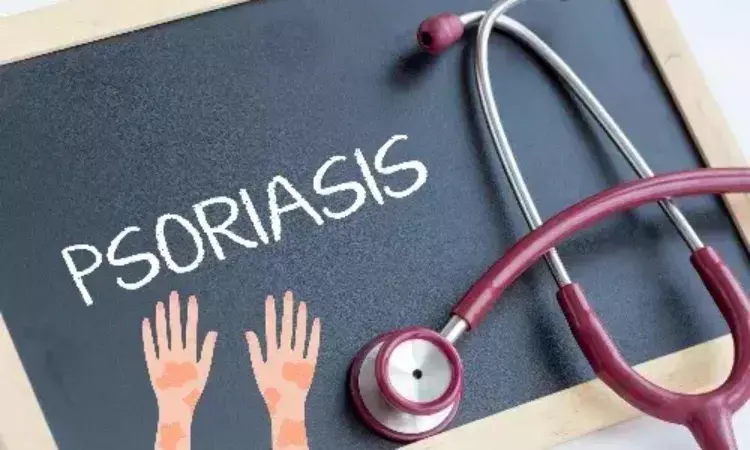- Home
- Medical news & Guidelines
- Anesthesiology
- Cardiology and CTVS
- Critical Care
- Dentistry
- Dermatology
- Diabetes and Endocrinology
- ENT
- Gastroenterology
- Medicine
- Nephrology
- Neurology
- Obstretics-Gynaecology
- Oncology
- Ophthalmology
- Orthopaedics
- Pediatrics-Neonatology
- Psychiatry
- Pulmonology
- Radiology
- Surgery
- Urology
- Laboratory Medicine
- Diet
- Nursing
- Paramedical
- Physiotherapy
- Health news
- Fact Check
- Bone Health Fact Check
- Brain Health Fact Check
- Cancer Related Fact Check
- Child Care Fact Check
- Dental and oral health fact check
- Diabetes and metabolic health fact check
- Diet and Nutrition Fact Check
- Eye and ENT Care Fact Check
- Fitness fact check
- Gut health fact check
- Heart health fact check
- Kidney health fact check
- Medical education fact check
- Men's health fact check
- Respiratory fact check
- Skin and hair care fact check
- Vaccine and Immunization fact check
- Women's health fact check
- AYUSH
- State News
- Andaman and Nicobar Islands
- Andhra Pradesh
- Arunachal Pradesh
- Assam
- Bihar
- Chandigarh
- Chattisgarh
- Dadra and Nagar Haveli
- Daman and Diu
- Delhi
- Goa
- Gujarat
- Haryana
- Himachal Pradesh
- Jammu & Kashmir
- Jharkhand
- Karnataka
- Kerala
- Ladakh
- Lakshadweep
- Madhya Pradesh
- Maharashtra
- Manipur
- Meghalaya
- Mizoram
- Nagaland
- Odisha
- Puducherry
- Punjab
- Rajasthan
- Sikkim
- Tamil Nadu
- Telangana
- Tripura
- Uttar Pradesh
- Uttrakhand
- West Bengal
- Medical Education
- Industry
Patients with severe psoriasis have higher risk of heart disease, new study provides further evidence

Italy: A recent study exploring the relationship between severe psoriasis and coronary microvascular dysfunction has provided further evidence of higher cardiovascular (CV) risk in patients with severe psoriasis.
The study, published in the Journal of Investigative Dermatology, published by Elsevier, is the largest to date that explored this relationship.
Psoriasis is a chronic systemic immune-mediated inflammatory disease that affects 1-3% of the global population. In this study, a total of 503 patients with psoriasis, and without clinical cardiovascular disease, underwent transthoracic Doppler echocardiography to evaluate coronary microcirculation. Investigators uncovered a high prevalence of coronary microvascular dysfunction in more than 30% of asymptomatic patients within the study population.
Lead investigator Stefano Piaserico, MD, PhD, Dermatology Unit, Department of Medicine, University of Padova, explained, "Previous studies have shown that patients with severe psoriasis have an increased cardiovascular morbidity and mortality. However, there has been limited research on the specific mechanisms underlying this increased risk, particularly regarding coronary microvascular dysfunction. We wanted to further investigate the prevalence of coronary microvascular dysfunction, as assessed by coronary flow reserve (CFR), in a large cohort of patients with severe psoriasis and its association with psoriasis severity and duration, as well as other patient characteristics. Patients with a reduced CFR underwent angio-CT to exclude a stenosis of the coronary arteries, and no patients showed coronary artery disease. Therefore, all patients with an impaired CFR in our cohort were affected by coronary microvascular dysfunction.”
The study revealed that psoriasis severity, assessed by the Psoriasis Area Severity Index (PASI) score, and the duration of the disease were independently associated with lower CFR, along with the presence of psoriatic arthritis. Furthermore, results from the study showed that conventional cardiovascular risk factors, such as tobacco use, hyperlipidemia, and diabetes mellitus, were not independently associated with reduced CFR in patients with severe psoriasis. These findings emphasize the importance of considering inflammation and psoriasis-related factors in assessing cardiovascular risk in patients with severe psoriasis.
The findings shed light on the potential mechanism by which psoriasis increases the risk of cardiovascular complications in affected individuals, in agreement with previous studies on chronic inflammatory conditions, such as rheumatoid arthritis, systemic lupus erythematosus and systemic sclerosis. The study supports the role of systemic inflammation in the development of coronary microvascular dysfunction.
Dr. Piaserico commented, "We should diagnose and actively search for microvascular dysfunction in patients with psoriasis, as this population is at particularly high risk. We might hypothesize that an early and effective treatment of psoriasis would restore the dysfunction and eventually prevent the future risk of myocardial infarction and heart failure associated with it. In keeping with this, some preliminary studies showed that coronary microvascular dysfunction is restored after a treatment with biologics. Nevertheless, prospective studies are needed to confirm whether these findings translate into reductions in cardiovascular events."
Dr Kamal Kant Kohli-MBBS, DTCD- a chest specialist with more than 30 years of practice and a flair for writing clinical articles, Dr Kamal Kant Kohli joined Medical Dialogues as a Chief Editor of Medical News. Besides writing articles, as an editor, he proofreads and verifies all the medical content published on Medical Dialogues including those coming from journals, studies,medical conferences,guidelines etc. Email: drkohli@medicaldialogues.in. Contact no. 011-43720751


